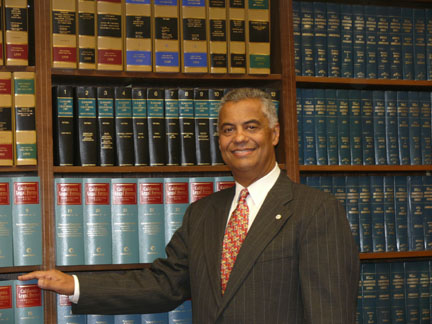International Estate Planning
The process of planning for resident aliens and U.S. citizens with assets in multiple jurisdictions is exceedingly complex and requires particular attention to detail. The United States has entered into tax treaties with numerous countries and consideration must be given to the laws of each jurisdiction during the design and implementation of a retirement, estate or asset protection plan. For example, for GST, gift & estate tax purposes, a taxpayer "should" have only one domicile. However, unless proper attention is given to this issue, it is conceivable for an individual to have a U.S. domicile even though resident abroad, or a foreign domicile even though resident in the U.S.. A higher level, or even double taxation of worldwide assets could result if domicile were to be claimed by both jurisdictions. Planning however, does not always prevent any country where an individual has assets from exerting control or demanding estate or inheritance taxes. In the U.S., relief is generally given for any taxes paid overseas through a system of tax credits provided for in treaties executed between the United States and other countries. This may not be true, however, for other jurisdictions.
|
The choice of law for the disposition of foreign situs assets must be thoroughly researched for the following reasons; In some countries real property is governed by situs law and personal property by the law of domicile. Some countries will recognize foreign wills and entities such as trusts if drafted to comply with the statutes of country of domicile. Civil law countries such as Germany, Austria and Switzerland do not recognize trusts within the meaning of the law of equity, but may (or may not) recognize foreign trusts of non-resident aliens or foreign domiciliaries. |
|
Some countries will apply the law of the decedent’s domicile with respect to wills and estates, while others will apply the law of the country of Nationality.
The choice of law is especially important for clients who have been married more than once and have children from previous marriages. Discussions should be held with foreign counsel on the issues of confidentiality, forced heirship and restrictions on testamentary freedom, defeat of creditor claims and the potential benefits and drawbacks of separate domestic and foreign wills or other entities. Drafting of multiple wills and or trusts if found desirable, will need to be carefully coordinated in order to avoid unintentional blanket revocation, or contradictory clauses which could cause unnecessary delays during Probate. Research of foreign gift and inheritance tax law should be performed and alternative dispositions such as U.S. situs trusts with restrictions on distributions (e.g. Distributions of principal and interest only available to the beneficiary outside their country of domicile) should be created where a danger of confiscation or higher taxation of intended gifts and bequests to foreign beneficiaries is perceived.
As previously mentioned, it is important to establish the individual’s country of "domicile" when planning the estate. Remember, domicile establishes to whom the estate owes money at the date of death on their worldwide assets. The treaties executed between the United States and other countries normally address what constitutes "domicile" for purposes of gift, estate or inheritance taxes.
Let’s take the United Kingdom as an example. Here are some questions to be considered when trying to establish whether a United Kingdom passport holder is "domiciled" in the United States for Federal Gift and Estate tax purposes;
- Does the individual own real property in the U.K. or maintain a "family home" there.
- Has the individual has been a resident in the United States for income tax purposes since 1970
- Is the individual’s "center of vital interests" the United States.
- Is the individual’s permanent family home located in the United States.
- Is the individual’s business headquartered in the United States
- Are the individual’s children domiciled in the U.S. and / or U.S. citizens.
- Are the individual’s advisors all located in California. These include their CPA, family attorney, financial planner, insurance agent, stockbroker and private banker.
- Is the individual a long time member and contributor to a local church located in the United States.
- Does the individual spend all of their time in the United States.
- Has the individual regularly filed income and gift tax returns in the United States since 1970.
- Does the individual use State issued I.D., for example (Driver’s licenses) and translations issued by the American Automobile Association when driving abroad and possess credit cards issued by U.S. banks for paying miscellaneous bills.
- Does the individual refer to the U.S. as "home" on all important documents related to wills and estate planning.
Once U.S. domicile has been established, it is important to remember that special rules regarding the taxation of gifts and estates apply to non-citizen resident aliens. Generally, estate taxes are due and payable at the death of the first spouse. U.S. citizens with an estate tax problem can normally delay the inevitable by creating a trust that preserves the exemption and also contains Q-Tip provisions to shelter the estate from taxes until the death of the surviving spouse. Special rules are applicable to non-citizen resident aliens however and unless properly planned, the estate may be liable for estate taxes at the first death.
|
|
The laws regarding estate and gift taxes in the United States are currently in flux after a change of power in Washington with the election of President Barack Obama. Under current law, estate taxes are to disappear for tax year 2010. However, this reprieve is currently for 2010 only and estate taxes will, unless the law is revised, be back with a vengeance in 2011. the top tax rate for estates (after allowance for the unified tax credit equivalent of 3.5 million) is 45% in 2009, 0% in 2010 (the top gift tax rate will be 35%) and in 2011, the top tax rate returns to 55%. (With a unified tax credit equivalent of 1 million) In my opinion, it’s unlikely that the estate tax will ever disappear after a doubling of the national debt during the last administration. |
Most economists familiar with federal debts vs. future income and when factoring in all entitlement programs have concluded, the U.S.A. cannot afford to repeal estate taxes. Please check with your tax adviser regarding any pending or new legislation in the area of gift and estate taxes before making any decisions as the Obama administration has yet to tackle this issue in the wake of it’s 2009 agenda of health reform for America, but they are likely to be challenged on this issue at the very latest in 2010 by Republicans. In other countries, particularly civil law countries, the size of the estate is often less important than the "classification" of the beneficiary for tax purposes. In the case of non-U.S. citizens, careful attention should be given to the choice of "residence" and "domicile" as laws of succession may be far more favorable in their country of birth. In some European countries, estate taxes range from 2% - 60%, BUT, the size of the estate does not increase the percentage of tax owed, the "category" of beneficiary does. In other words, "category one" beneficiaries such as children and parents may pay 2% tax on the entire estate, whereas third cousins twice removed or non relatives "category twelve" are likely to be taxed at the 60% range. Remember, beneficiaries take immediate possession and are liable for the debts of the estate in many countries so accepting the inheritance without getting proper advice can be devastating and in many cases, qualified disclaimers might save the unwitting "beneficiary" from financial ruin.
If you are U.S. Citizen with a non-citizen spouse, a U.S. citizen or resident alien with assets located in multiple jurisdictions, or a foreign company executive of a U.S. firm working here in the U.S. and need competent planning, please contact us, we can help!



